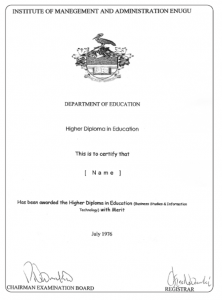UCL and international branch campuses: the start of a global trend in the sector?
“It is hard to create such a uniquely British university experience outside of the UK. Taking advantage of successful institutions abroad and creating strong partnerships is perhaps the easier and more effective option”
Christopher Airey, managing director of Diversity Travel, a travel management firm which specialises in travel in the academic sector, writes about UCL’s recent announcement that it is closing two overseas branches, and explored whether this points to a wider industry trend.
 University College London recently announced it will be closing down its international branch campuses in Australia and Kazakhstan, and will be reviewing its operations in Qatar. Rather than trying to recreate a UCL overseas, the university is looking to forge connections with existing institutions already in their target locations. By the end of next year, UCL is hoping to establish three ‘anchor partners’ to take advantage of existing facilities and expertise.
University College London recently announced it will be closing down its international branch campuses in Australia and Kazakhstan, and will be reviewing its operations in Qatar. Rather than trying to recreate a UCL overseas, the university is looking to forge connections with existing institutions already in their target locations. By the end of next year, UCL is hoping to establish three ‘anchor partners’ to take advantage of existing facilities and expertise.
Dame Nicola Brewer, UCL’s vice-provost for international projects told the Financial Times: “What we’ve concluded is that you simply can’t recreate the UCL experience… in a niche operation overseas.”
“What we’ve concluded is that you simply can’t recreate the UCL experience… in a niche operation overseas”
Brewer’s comments address the cultural constraints of creating an international branch campus where ‘British-ness’ is part of the product offering. However, as Brewer says, it is hard to create such a uniquely British university experience outside of the UK. Taking advantage of successful institutions abroad and creating strong partnerships to provide a British education in a local setting is perhaps the easier and more effective option.
But does UCL’s move suggest the start of a global trend in migration in the sector?
As a firm that specialises in arranging travel in the academic sector, we are always keen to follow how institutions are developing or looking to develop overseas. There are currently 44 UK branch campuses across the world, and according to The Observatory on Borderless Higher Education, this figure is set to rise over the next five years.
According to the British Council, UK students too are now moving overseas. In a recent poll, the organisation found that more than a third of students they interviewed at undergraduate level were more interested in studying overseas, and in a similar study found that 28,640 students went abroad to study or take up an internship last year. Perhaps this is due to the bigger issues in UK higher education overall: the rise in fees.
With the significant rise in tuition fees through the last coalition government, it seems that students have started questioning the real value of their degrees. Students are becoming more acutely aware of university fees and are looking for alternative options through governments overseas. Some governments like Brazil currently offer EU students free access to higher education, providing an incentive to migrate.
“With the significant rise in tuition fees through the last coalition government, it seems that students have started questioning the real value of their degrees”
Studying abroad for the same degree they would attain in the UK could, in fact, become the added value students will come to demand from an academic institution.
Administrations in other regions are providing opportunities for UK institutions to take advantage of this. Governments in Southeast Asia are willing to finance establishments looking to build international branch campuses as part of their in-country global hub ambitions, and Gulf states too are hoping to grow branch campuses in the region.
While the latest figures suggest that UK students are migrating in favour of a more global experience, the UK is expected to be at the top of countries receiving inbound students – and the OBHE predicts that 28,000 additional foreign students will be attracted to the UK by a British education by 2020 with growing numbers coming from India, Nigeria, Pakistan and Malaysia.
While this is a great opportunity for the UK economy, could limited places on courses lead to missed opportunities for UK institutes? Could a better presence in other countries help institutions supply to any anticipated surge in demand?
Perhaps the future is a more international way of positioning courses for University students which can allow for flexibility. Hult International Business School, for example, now has a one-year MBA that allows students to rotate between Boston, Shanghai, London Sao Paulo, San Francisco, Dubai and New York. Similar opportunities are provided by Manchester Business School which boasts five campuses overseas.
“UCL’s closures of International Branch Campuses does hint to a change in direction for ‘internationalising’ higher education”
UCL’s closures of International Branch Campuses does hint to a change in direction for ‘internationalising’ higher education. In a recent survey conducted by EAIE earlier this year, it was revealed that opening branch campuses are now the lowest internationalisation priority for universities, suggesting the limited amount of courses offered makes them unsustainable.
However, in the same survey, respondents still saw the importance of internationalising higher education with the most important reasons being to improve the quality of education and to prepare students for a global world. Although UCL is closing international branch campuses, it seems to be exploring more effective ways to have a global presence.
In order to compete on a global scale, it is clear that institutions need to think about all opportunities for growth and providing a British education overseas, indeed, holds a wealth of opportunity.

